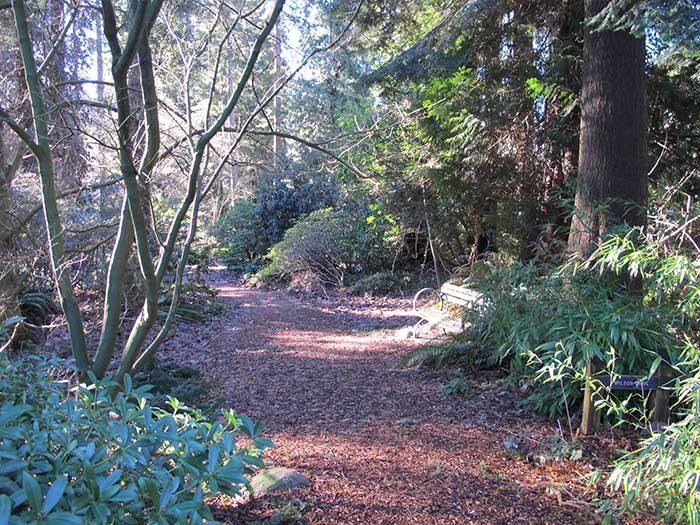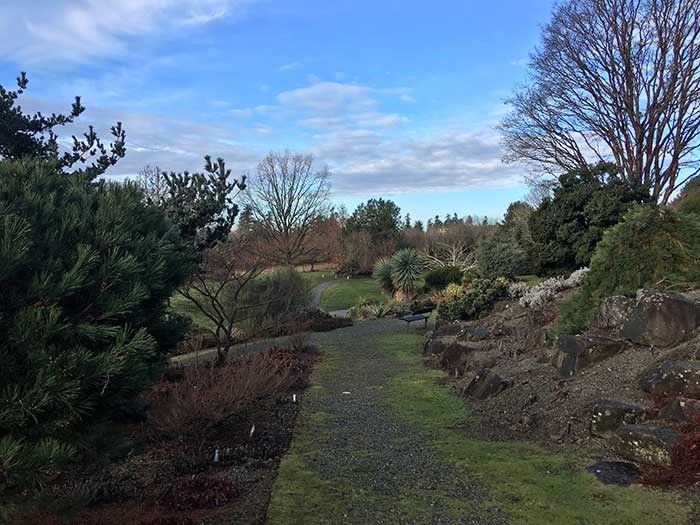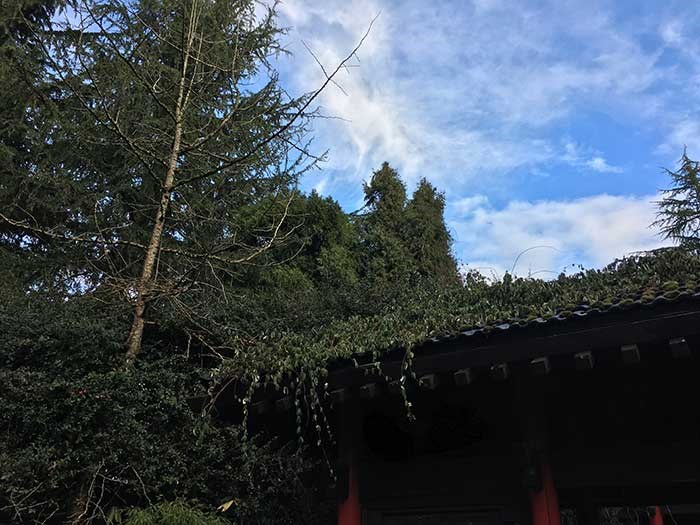Vancouver’s weather may have been startling lately (not to mention freezing!), but even with all the rain and frost, nature always seems to have a charm that can make the gloomiest day better. Whether it’s a stroll in the park, a walk on the beach, or a visit to your favourite botanical garden, there is now scientific proof for that spirit-raising quality that interaction with the outdoors brings.
 A trail in the Asian Garden at UBC Botanical Garden
A trail in the Asian Garden at UBC Botanical Garden
Australian conservation magazine Decision Point recently published the results of a research investigation conducted by University of Queensland Research Fellow Danielle Shanahan, which looked into the positive health benefits of exposure to nature. Danielle’s team found that, among a number of benefits, individuals who get 30 minutes of more of exposure to nature each week are less likely to experience high blood pressure or depression. Dubbing this 30-minute minimum the recommended ‘dose of nature’, their analysis showed that “the prevalence of depression could be reduced by up to 7% and that of high blood pressure reduced by 9% if everyone met this 30-minute minimum-dose guideline”. The research highlights the importance of contact with nature in particular for urban dwellers, who are 90% of the population in Australia. According to Statistics Canada, over 80% of Canadians live in cities, mirroring Australia’s urban/rural population distribution. These individuals are less likely to live near areas with easy access to nature, which Danielle’s team argues stresses the need for cityscapes to be modified with health and wellbeing in mind. “This was the key motivation behind our work, which ultimately aimed to explore what type, and what amount, of nature people require in order to receive the best health benefits.” In addition to reduced high blood pressure and depression rates, the study also showed improvements in "social health (social cohesion) and a positive health behaviour (physical activity).”
 The Alpine Garden at UBC Botanical Garden, with trails winding up and down recreations of montane and alpine habitats
The Alpine Garden at UBC Botanical Garden, with trails winding up and down recreations of montane and alpine habitats
Last November, UBC Botanical Garden was involved in UBC’s Thrive initiative for promoting mental health across campus, with staff providing free tours of the Garden to UBC employees and students. While those tours are now completed, the Garden remains open daily and provides one of the largest and most easily accessible natural spaces on the UBC campus and the west side of Vancouver as a whole. UBC is also holding its Suicide Awareness Day on January 25th and has organized a series of awareness training talks throughout the week.
UBC Botanical Garden is open 9:30 am – 4:30 pm daily, with admission on a by-donation basis until spring.
 The Moon Gate at UBC Botanical Garden
The Moon Gate at UBC Botanical Garden


